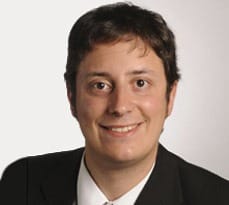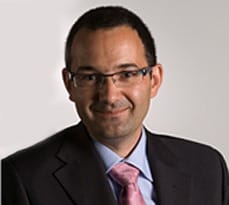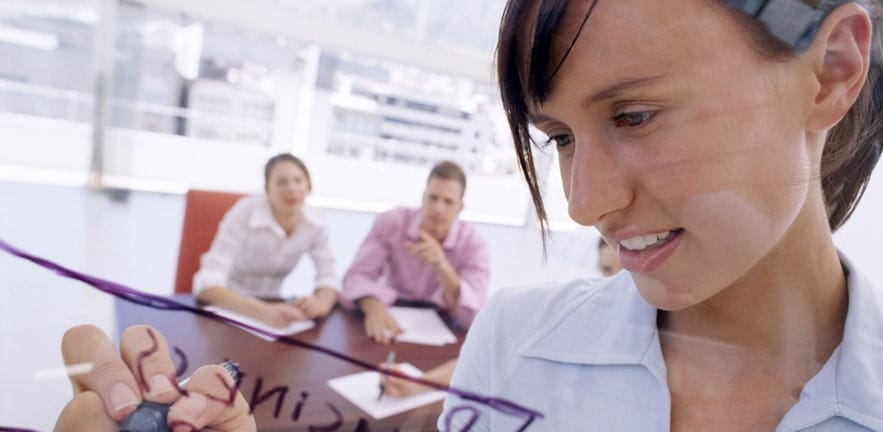We all know it takes passion and determination to be a successful entrepreneur. But here we discuss with experts and MBA alumni what other vital factors make it possible.
The sector specialist – Simon Stockley

Coach on the Cambridge MBA Entrepreneurship Concentration, Simon has spent almost 20 years working with budding entrepreneurs from around the world.
Do I have what it takes to be a successful entrepreneur?
There is a lot of received wisdom about entrepreneurship, but much of it is wrong and not supported by empirical evidence. One of the main misconceptions is that there is a particular entrepreneurial personality, when in fact all sorts of people can, and do, become successful. The key is finding the right area for you. For example, Bill Gates and Steve Jobs were phenomenally successful in IT because it exactly suited them but it might have been a different story if they’d gone into hospitality!
What skills do I need?
Initially it’s more about focusing on the proactive things you can do to act in a more entrepreneurial way. It sounds obvious, but make sure you choose an entrepreneurial environment – as the leading technology innovation hub in Europe, there’s no better place than Cambridge in which to mix with like-minded people. At school and in some businesses, where you have to ‘do as you’re told’ and follow the rules, entrepreneurial behaviours get socialised out of you and are sometimes punished. It is, of course, possible to re-kindle your entrepreneurial spirit, especially in a supportive ecosystem such as Cambridge. Skills are important of course, but unless you feel able to act in an entrepreneurial manner and actually use them, they won’t count for much.
So where can I find other entrepreneurs to learn from?
Cambridge is full of such people, and CJBS provides many opportunities to meet them. The Centre for Entrepreneurial Learning and their ‘Enterprise Tuesdays’, the Accelerator for early stage start-ups, CUTEC (Cambridge University Technology and Enterprise Club) and many other organisations bring together some of the most creative and innovative minds.
Isn’t there a lot of competition among entrepreneurs?
This is another misconception – that if you have an idea you mustn’t talk about it because it will be stolen by someone else. I’ve taught thousands of students and never seen anyone steal an idea. What I have seen, though, is how talking through your idea with like-minded people offering different perspectives can have an enormously positive impact. On the other hand, I can guarantee that if you don’t discuss your idea with anyone, it’ll go nowhere.
So what will an MBA contribute to a budding entrepreneur?
MBAs are about finding out who you are and where your passion lies – many people opting for an MBA are looking for change and we can guide them through this process. You’ll be in good company – many people have started their entrepreneurial careers here. We won’t tell you what you should do or suggest you go into a particular industry. But we will give you the tools to clarify your thinking and priorities, identify where your strengths lie and use them to develop yourself as an entrepreneur. Life is much too short to spend it doing things you don’t love. Part of what makes an entrepreneur tick is finding an opportunity that you love, one that makes you leap out of bed every morning.
Alumnus – Sebastian Concha (Cambridge MBA 2009)
Leaving a job in the Chilean wine industry, Sebastian spent four years after his MBA at Mintel in London and Latin America. He is now back in Chile as CEO at Premium Soft Drinks, the company he founded in 2013.

What’s the story?
I was the head of New Projects in Latin America largest winery. While the company was operating in many countries, the internal culture was very Chilean centric, lacking a more international and diverse vision that I felt was needed. That was my motivation to get an MBA – to get a global view of how business works. I chose the UK for my MBA because its programmes seemed to have a much more mature intake, and this represents a wealth of experience you can learn from. I chose Cambridge in particular because it seemed to be more collaborative than the alternatives. It was more project-based, working within teams.
What did your MBA give you?
The programme itself was fantastic in so many respects. You learn new perspectives from marketing, strategy, finance and for my Global Consulting Project I worked with Diageo, developing a vodka strategy for the Latin American and Caribbean markets. But it’s the inter-disciplinary culture of Cambridge Judge that makes the difference. When you’re in a room with classmates, many of them already very successful, and all with different perspectives, you can feel the energy – and your own experience is valued within that mix. It is so dynamic and broad.
How has the MBA benefited your career?
After completing the MBA I became a global drink analyst at Mintel in London, and then became the company’s director of research in Latin America. In 2013, I founded my own company, Premium Soft Drinks in Chile. The MBA, and the knowledge it gave me, are responsible for all of this – I would not be where I am without it.
Alumnus – Abel Ureta-Vidal (Cambridge MBA 2008)
Abel is Chief Executive at Eagle Genomics, the bioinformatics company he founded shortly before graduating from his Cambridge MBA in 2008.

What’s the story?
I was working as a project manager at the European Bioinformatics Institute at the Wellcome Trust Genome Campus, and wanted to move from academia into industry. My rationale was to take a year off and do an MBA to learn about business.
I had envisaged that after my MBA I would maybe look at a more strategic and managerial role in the R&D of a large life sciences company such as Unilever or MedImmune. But just before I started the MBA I got an opportunity to do some work for a US pharmaceutical company, who were impressed but suggested they couldn’t deal with a freelance in the long term. Essentially they were saying: “We’d like to continue working with you. If you form a company, we’ll give you a contract.” So from then on my focus became entrepreneurship and how I could scale up my business. Thanks to the MBA I was able to co-found the company, Eagle Genomics, and since then it has gone from strength to strength.
What did the MBA give you?
It gave me an understanding of the essential aspects of setting up a business – accountancy, corporate finance, marketing, strategy – but it was the events and the people that moulded my mind. You’re constantly moving in circles where you meet and feed off entrepreneurs, you meet potential investors and find out what they want. My MBA put me in the right group of people to give me a much better understanding of what I really needed to succeed as an entrepreneur.
And the location was really important. Cambridge is a relatively small city with an intense concentration of brilliant minds, great knowledge and fantastic networking opportunities. The power of networking was a huge learning curve for me. If you don’t make the effort to go to events, to talk to people, you’ll never make the new and important connections that might make a difference to your business.
How has the MBA benefited your career?
Without the MBA it’s extremely unlikely I would have built up the confidence to set up a company. I might have learned some of the hard skills about business along the way, but it would have been painful. Running a business, it is truly a roller-coaster ride – with ups and downs, good days and bad days. Somehow the MBA, its style and structure, prepared me for that to some extent and gave me the tools to deal with that – and, above all, the confidence in what I was doing. And six years on, we have grown the company year on year, and raised £1m in investment in 2013 to build a software platform that will shift the business from consultancy into software-based solutions, and that will take us to the next level. The MBA is exceptional not just because of what it is, but where it is. Cambridge shows what an entrepreneurial eco-system should be. Everything is here.


